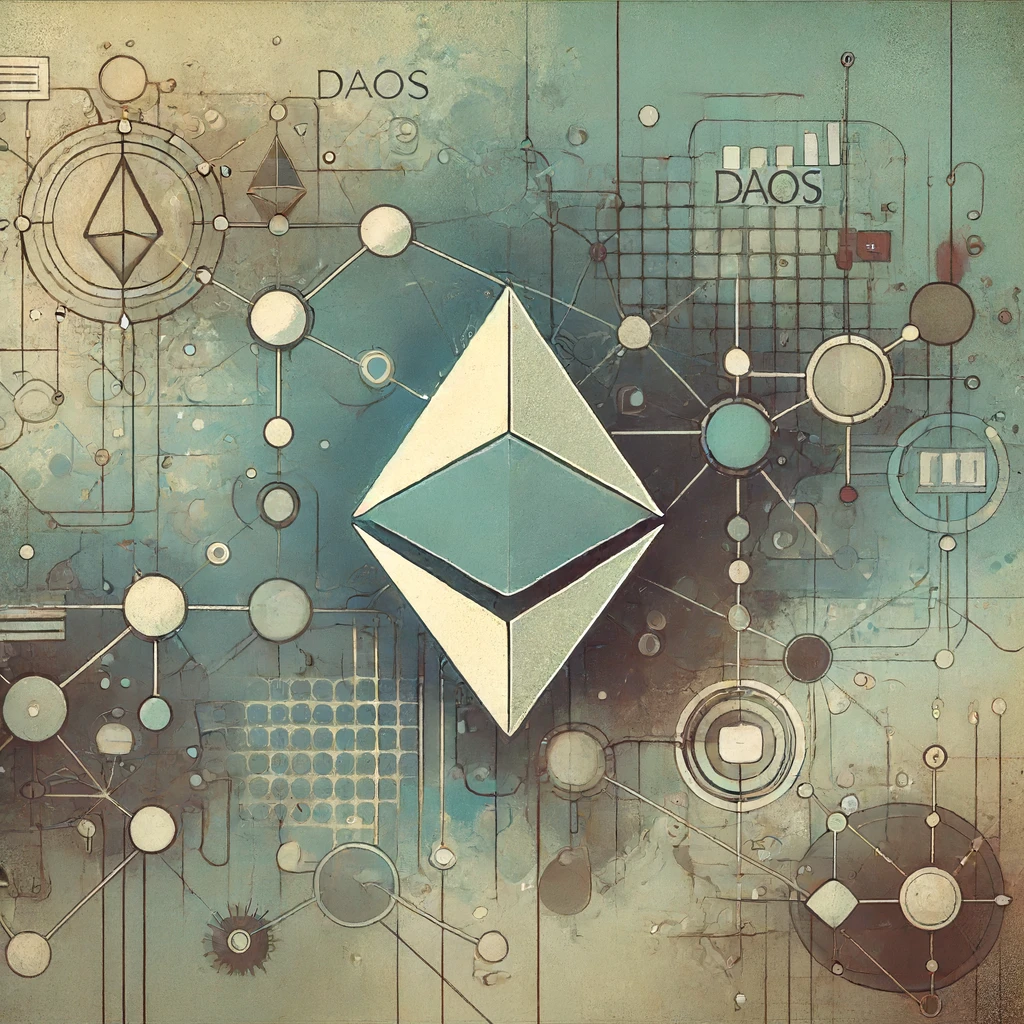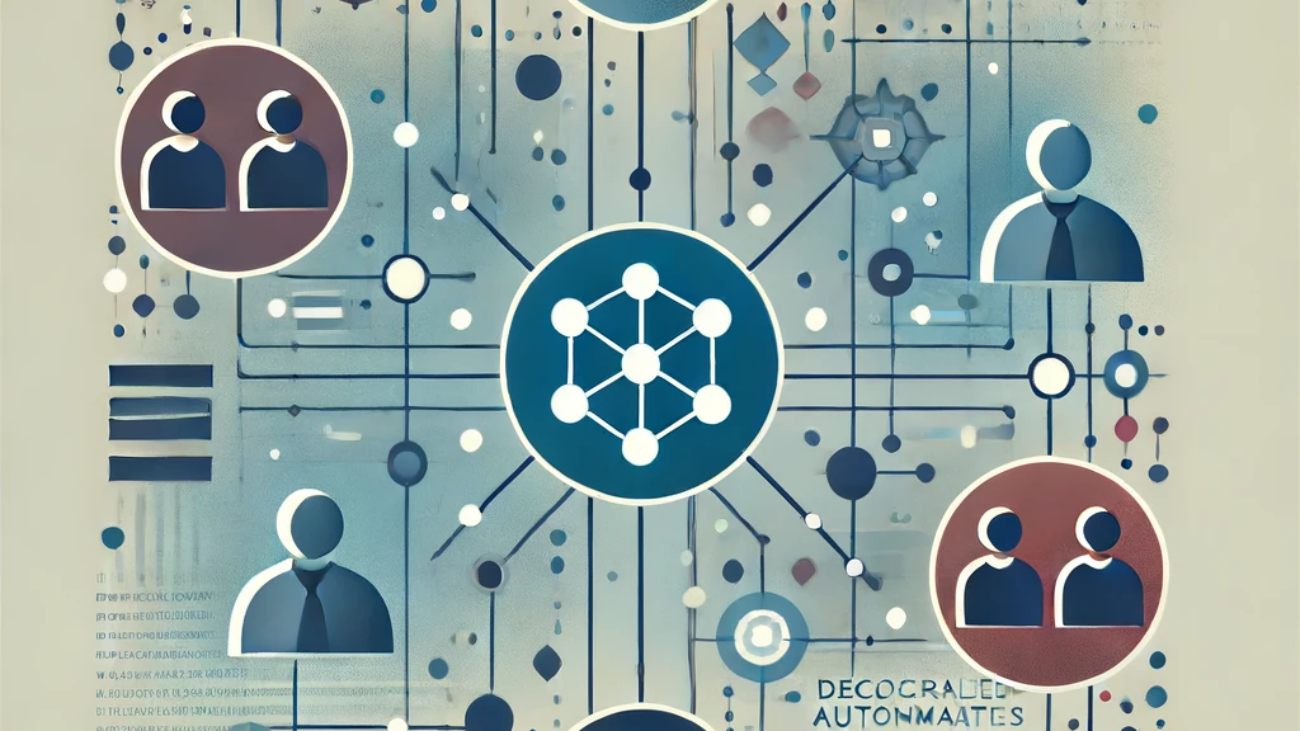Understanding DAOs
A Decentralized Autonomous Organization (DAO) is a system governed by smart contracts on a blockchain. Unlike traditional organizations that rely on centralized leadership and hierarchical decision-making, DAOs operate on decentralized principles. Every member of a DAO has the opportunity to participate in governance, propose changes, and vote on important matters. This ensures transparency, fairness, and collective decision-making.
Key Features of DAOs
- Decentralized Governance: Decision-making power is distributed among all members, allowing for more democratic processes and reducing the risk of centralized power abuse.
- Smart Contracts: Automated contracts execute predefined rules and decisions, ensuring that organizational operations run smoothly and transparently without the need for intermediaries.
- Token-Based Voting: Members hold tokens that represent their voting power. These tokens can be used to vote on proposals, elect leaders, and make organizational decisions.
- Transparency and Immutability: All transactions and decisions are recorded on a blockchain, providing a transparent and tamper-proof record of activities.
Benefits of DAOs for Labor Management
1. Enhanced Democracy and Inclusivity:
DAOs empower workers by giving them a voice in the decision-making process. This inclusivity fosters a sense of ownership and responsibility, leading to higher employee satisfaction and motivation. By democratizing decision-making, DAOs can create more equitable work environments where everyone has an equal say.
2. Flexibility and Adaptability:
Traditional hierarchical structures can be rigid and slow to adapt to change. DAOs, on the other hand, are inherently flexible. Decisions can be made quickly and efficiently, allowing organizations to respond rapidly to market changes and new opportunities. This adaptability is crucial in today’s fast-paced business environment.
3. Transparency and Accountability:
With all activities recorded on a blockchain, DAOs ensure complete transparency. This reduces the risk of fraud and corruption and increases accountability among members. Employees can trust that decisions are made fairly and resources are allocated efficiently.
4. Cost Efficiency:
By eliminating the need for intermediaries and automating processes through smart contracts, DAOs can significantly reduce administrative costs. This efficiency allows organizations to allocate more resources towards innovation and growth.
5. Innovation and Collaboration:
DAOs encourage a culture of innovation and collaboration. Members are incentivized to contribute ideas and solutions, leading to a more dynamic and creative work environment. This collective intelligence can drive the organization forward and create a competitive edge.

Implementing DAOs in Various Industries
Technology and Startups:
Tech companies and startups are natural candidates for adopting DAOs. These industries thrive on innovation and agility, making the decentralized model an ideal fit. DAOs can foster a collaborative environment where developers, designers, and entrepreneurs work together seamlessly.
Creative Industries:
In industries such as art, music, and film, DAOs can provide a platform for artists and creators to collaborate and manage their projects autonomously. This can lead to more diverse and original content, driven by the collective vision of the community.
Finance:
Decentralized finance (DeFi) is already leveraging the principles of DAOs to create transparent and efficient financial systems. Traditional financial institutions can also adopt DAOs to improve governance and decision-making processes.
Healthcare:
DAOs can play a significant role in healthcare by facilitating collaborative research and development. Medical professionals and researchers can pool their resources and expertise to innovate and improve patient care.
Non-Profit Organizations:
Non-profits can benefit from the transparency and accountability provided by DAOs. Donors and volunteers can be assured that resources are used effectively, and decision-making is inclusive and democratic.
Challenges and Considerations
While DAOs offer numerous benefits, there are challenges to consider:
1. Regulatory Uncertainty:
The regulatory environment for DAOs is still evolving. Organizations must navigate complex legal landscapes and ensure compliance with local laws.
2. Technical Expertise:
Implementing and managing a DAO requires technical expertise in blockchain technology and smart contracts. Organizations must invest in training and development to build these capabilities.
3. Security Risks:
DAOs are susceptible to hacking and other cyber threats. Robust security measures must be in place to protect the integrity of the organization and its assets.
4. Cultural Shift:
Transitioning to a decentralized model requires a cultural shift within the organization. Employees and leaders must embrace new ways of working and be open to change.
Conclusion
Decentralized Autonomous Organizations (DAOs) represent a transformative approach to labor management. By promoting democratic decision-making, flexibility, transparency, and innovation, DAOs have the potential to revolutionize various industries. While challenges remain, the benefits of adopting this model are substantial. As the world continues to evolve, DAOs offer a glimpse into the future of work, where collaboration and collective intelligence drive success. Embracing this innovative approach can lead to more resilient, dynamic, and equitable organizations in the 21st century.

